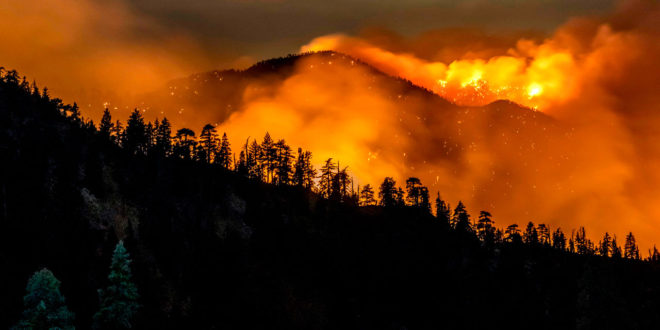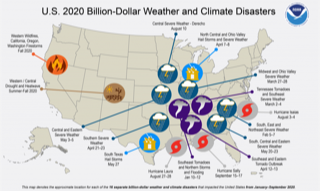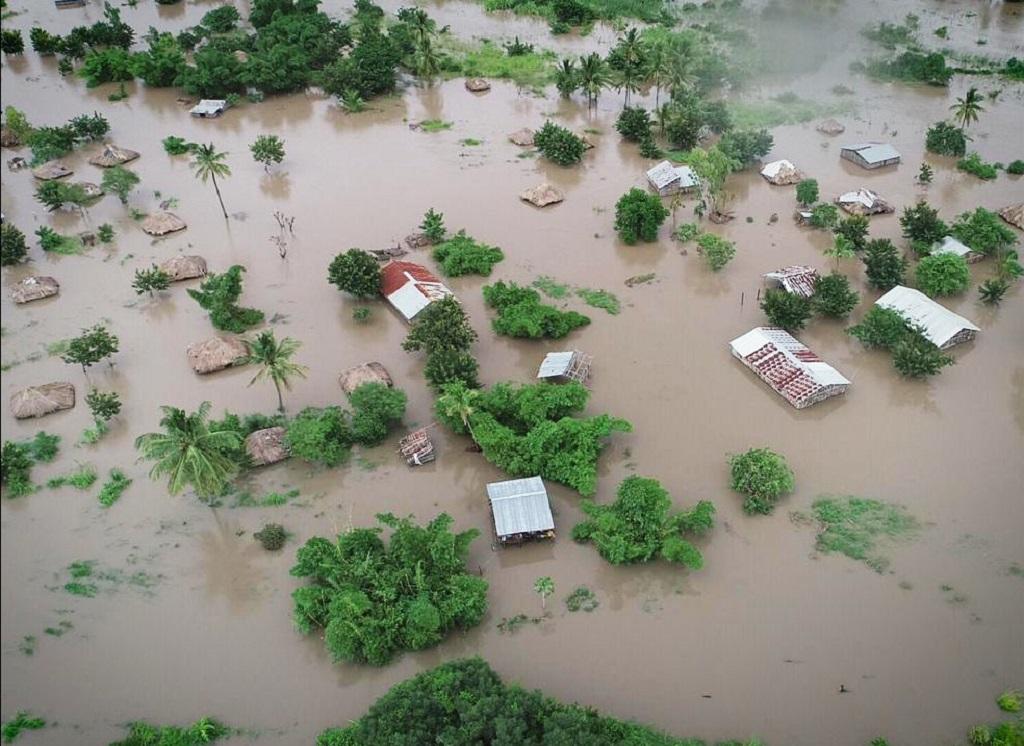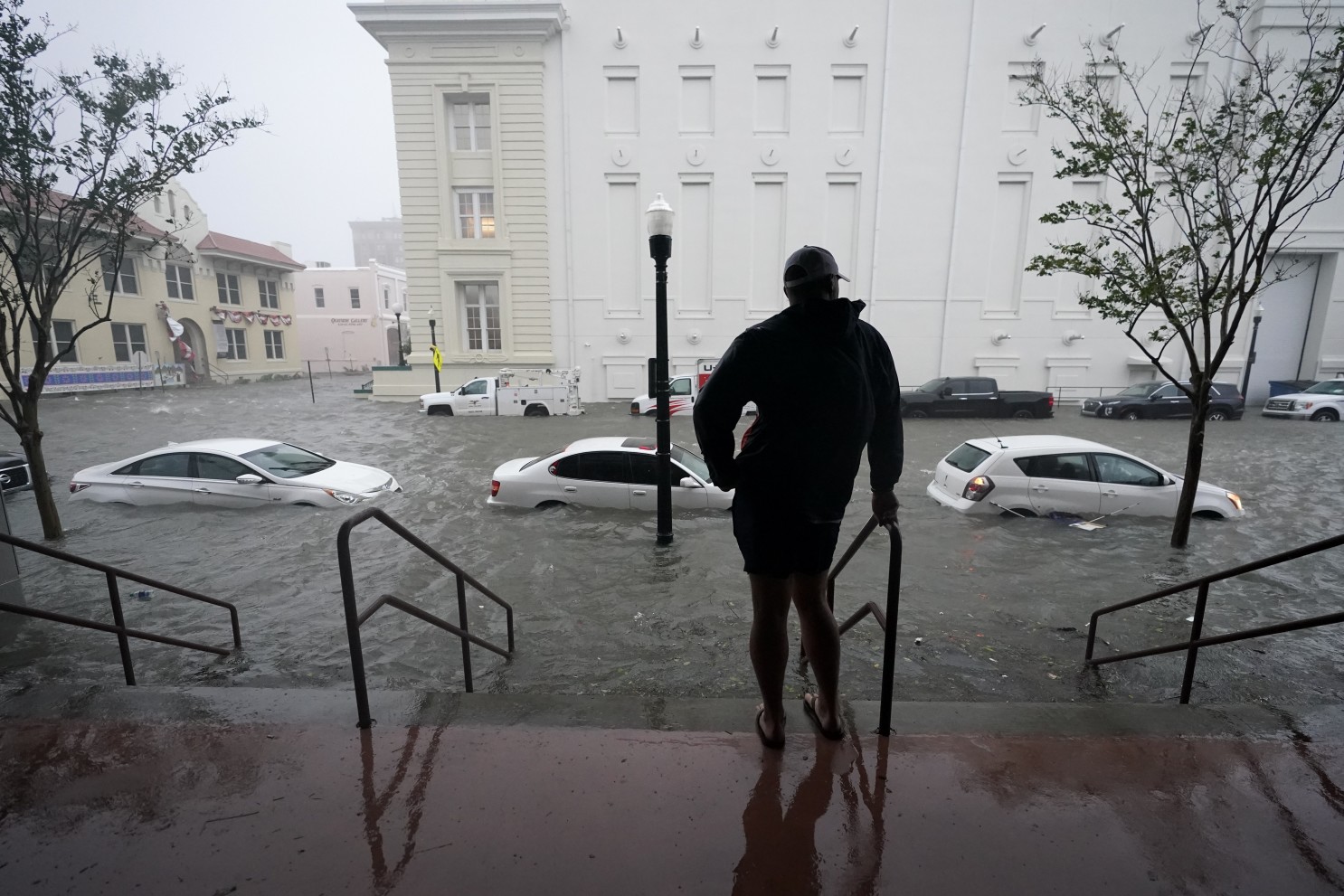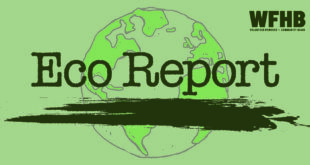Podcast: Play in new window | Download (Duration: 4:50 — 2.2MB)
Last month was officially the hottest November our planet has seen. As a direct result of climate change, this decade we are about to leave, 2011-2020, will be known as the warmest decade in history, according to the World Meteorological Organization.
So what were the key events that fueled this record breaking year?
As for the United States, we tied the annual number of major environmental events from the first nine months of 2020 to the numbers recorded from the span of 2011 to 2017 overall.
Let’s break down the events that happened from January to October:
Starting in January, we saw tornadoes in the Southeast area and Northern storms and flooding.
In February, we had severe weather in the South, East and Northeast.
In March, the Midwest and Ohio Valley had severe weather.
In April, North Central and Ohio Valley experienced hail storms, and Southeast and Eastern areas had tornado outbreaks.
In May, Central and Eastern areas had severe weather and Texas had hail storms.
Hurricane Laura and Hurricane Isaias hit the US, in the south and southeast areas in August.
In September, Hurricane Sally hit Alabama.
From September to October, the western states experienced intense effects of wildfires in the area as well as drought and heatwaves.
Overall, the total of losses costing over $1 billion to the US, not to mention the lives that were cost as well.
And keep in mind, those consecutive events were just what the US experienced.
Severe flooding affected millions of people this year in East Africa and the Sahel, South Asia, China and Viet Nam.
In South America, severe drought affected many people, the worst being in Argentina, Paraguay and Brazil.
Australia had their worst fire season in history according to Sydney’s Rural Fire Service. Twenty-Five people were killed, and six percent of the state was incinerated.
***
In 2019, Michigan’s great lakes saw a rise of almost 2 feet from heavy rainfall, almost a record breaking amount since the wettest year in West Michigan which was 1892.
The Great Lakes currently hold 84 percent of North America’s surface freshwater and have been a major source of investment for agriculture and industries.
With the rising effects of climate change though, that precious resource is becoming even more precious.
This year, Indiana has made some progressive steps to fight climate change, such as plans to retire coal plants, which make up the majority of the state.
However, the state is still at very high risk. In the next coming years, Hoosiers will be experiencing hotter and drier summers with wetter winters and springs.
Some estimates have suggested that rainfall in the winter months could increase to 40% by the 2080s.
With more rainfall, we will be more susceptible to flooding. The issues that flooding causes is damage to the economy through destruction but also long term damage, which could affect the drinking water supply for Indiana.
Heavy rains can pull soil from the ground and bring in chemicals and contaminants into the lakes and rivers.
The utilities director for Bloomington said that an upgraded ultraviolet-light-based treatment plant would cost around $10 million.
Using a UV lamp in treatment can disinfect water and deactivate bacteria and viruses for safety.
On more optimistic news, there is an increase in people caring for this planet every day, according to a poll conducted by the Washington Post and Kaiser Family Foundation.
The poll found that about 8 in 10 Americans believe that human activity is fueling climate change and roughly half say action is needed within the next decade in order to avert the worst effects.
More than 500 global companies have now committed to setting climate goals based on the most recent science.
On October 6, the European Parliament voted to adopt a new climate law, mandating a 60% reduction in Greenhouse Gas emissions by the end of the decade.
Democratic President-elect of the United States, Joe Biden, vowed to make significant changes in terms of climate change when in office. He has seemed in agreement with environmentalists to ban Big Oil lobbyists from his transition team and cabinet, although he has not promised to do so.
The new year will inevitably bring new things, but what will remain the same is the issue of climate change.
 WFHB Bloomington Community Radio
WFHB Bloomington Community Radio
